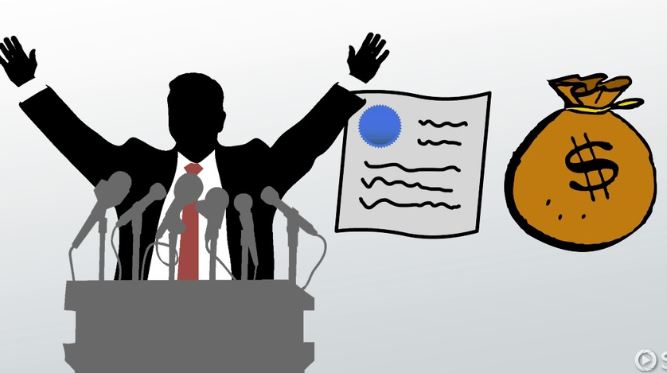Planning before work: why and how?
We often hear the saying, "A good plan is half the work." When we have a lot of work to do and when we are under a lot of pressure we think about one thing and that is how to get the job done quickly. We don't think of a beautiful plan or we don't want to waste time planning. I hope everyone agrees with me.
But the work is not right because a good plan is basically half of the work. If you do not plan then your time is more likely to be wasted and since time is money so you are wasting money, not time.
People basically don't think planning is part of the job. Most people think of it as extra work. When we have extra time we may be aware of the plan but if the work is urgent and important then the focus is more on getting the results of the work faster than the plan. And in these cases, it is seen that due to lack of proper planning, various problems arise in the work, and procrastination increases.
Those who think planning is a waste of extra time cannot finish the work on time so they always lack time. And those who live a planned life always have extra time on their hands which brings them the joy of retirement.
Why spending time in planning, before starting prototype work, can save a lot of time
Some of us think it is used for planning teams or any big project. But it should always be used in personal life. Not every task in our lives has to be planned. But we know and should do the things we need to do to make the most of our time and achieve our goals.
Why plan in life?
A good plan is like a map. If we follow the directions, we will know where we are. How far we have come and how far we have to go to achieve the goal of our life.
Planning saves us time and money. It basically cuts through our wasteful work and enables us to see only the necessary part. We can find out if any of our work is being repetitive. We will definitely not allow two of our customers to meet at the same time unless they need to meet for the same purpose.
When we plan before doing something, our brain is trained and good ideas are generated. Planning gives us the opportunity to see our work in a different light.
The plan shows us what to do? How to do it? And how long will it take? Besides, it is also known through planning who needs to be involved in completing the work.
Planning tips for you:
- Create a to-do list
- Know your potential
- Make a good plan.
- Review your plans regularly.
- Check how much has been done in the middle of the work and how much is left.
- Make a note. Write down the mistakes of the work so that the mistakes can be avoided during the next plan.
- Follow the time management tips.
- Review the whole day before sleeping.
- Always keep your inbox clean.
- Stay away from similar problems that arise every day.
- If possible, get some work done by someone else on your team.
- Prioritize work.
- Enjoy your time and work.
- Spend time with family and friends to keep yourself worry-free.
Most of us still start our day by writing notes or thinking. This means that most of us are skilled at planning and we have a long experience in this regard. From that student life we are skilled in various plans. Some plans may have succeeded and some plans may have failed. It is safe to say that this is not a bad thing at all.
A beautiful plan is needed to implement the goal or target. Which will take you to the golden door of success. Before discussing a beautiful plan for the implementation of a goal, it is necessary to discuss the occupation or career, purpose, and level of organization.
Profession or career
People work for a living to save their lives. It is through this that man chooses himself as a means of livelihood by mastering a subject. The path that people choose as a way of livelihood is basically their profession or career. Career is also the name of moving forward on the step of improvement step by step in life.
Sequential planning of career or career job life. There are different meanings of profession or career. Going forward, earning a living, getting more responsibilities, gaining more rank, respect, and skills, etc. By profession, of course, we mean the periodic positions of a person's career. Career is the sequential realization and change of a person's lifelong experience and position related to his activities and work.
The lexical meaning of profession or career is progress in life path, livelihood, development, means of earning a living or scholarship, etc. The definition of profession or career was given by the Cambridge International Dictionary of English is - an action acquired on the basis of education or training that brings qualitative and experience richness throughout one's career, increases responsibility, and ensures adequate living.
A career is an ongoing process in human life. Occupation or career is the process of a person's lifelong experience of work and work and the gradual realization and change of position. People creatively develop the skills and abilities they need and strive to make them more important to others. So this process is not the same for everyone and depends on the environment around the person and the factors that affect life such as family, different sections of society, social policy, and labor market, etc. Career refers not only to one's own development for a specific type of work or a job of choice but also to a broader idea of a profession or career now.
Work, profession, and life goals are not one
Many of us think of work, profession or career and life goal as one. Actually work, profession or career and life goal are not one. Rather, we can say that climbing the peak of success with one's profession or career is one. Work, profession or career and life goal are three related issues but not one. Basically people do different kinds of work to fix their profession or career or to reach the goal
Career structure
Career formation refers to the periodic stages of a worker's life. Adopts a specific approach to achieving the goals of individuals and organizations in career formation. Career formation is very important to us. We know that people often choose their careers and get into trouble. And managers also face new and unexpected situations while trying to control and mobilize employees. The historical belief is that every employee wants to be in a higher position if given the opportunity, but the idea that a vacancy is filled by a qualified employee and a qualified employee will be qualified for life is not true. Life is changing and the livelihoods and aspirations of the workers are changing. In such a scenario, career selection and career formation have become an important issues in human resource management. Some time ago, the organization itself used to help the employees in building their careers. The human resources of the organization provided information and other assistance to the employees to get an idea about their careers and thus recruited truly qualified and skilled workers every day. Although the knowledge and deeds acquired in human life may seem different at present, there are considerable similarities between them and they are woven in the same thread. These are changed and redesigned as needed. And career is the process of managing one's life knowledge and actions in an orderly manner. Career inclusion is the gradual development of the personal skills and qualifications of the human resources or job seekers working in the organization, the behavior, the attitude to the desired level. The organization also wants to build its human resources for the future. Therefore, not only the role of the individual but also the organization has an important role in the formation of the career. There are, of course, two perspectives on career formation. One is the institutional point of view and the other is the personal point of view.
The institutional approach is:
Increase staff efficiency and capacity,
Reduce labor rotation,
Adequate human resource supply,
Sensitivity to diversity,
Feedback and sequence.
Personal perspectives are:
Self-criticism,
Elasticity,
Education,
Empowerment,
Job security.
When an employer has many alternative candidates with the same skills and qualifications for a particular job, the employer can choose anyone. But if more talent is found in one of these alternative candidates then the employer will be interested to hire him. Additional qualifications, additional achievements, and loyalty to the organization set one candidate apart from others. And that is why there is no alternative to building a career of an employee. A joint venture of individual organization in career formation
C and has responsibilities and duties for the development of individuals and organizations. In short, career development is the formal and structured way of working for the employees by the organization to increase the knowledge, awareness, and ability of the employees which provides guidance for the betterment of the profession. Career formation changes the skills, knowledge, and attitude of employees. Career formation coordinates the needs of the organization with the qualifications and expectations of the employees. In the formation of the profession, the organization arranges for the development of the staff in line with the long-term requirements and dynamic changes.
Purpose in career or career
The main purpose of career or career thinking is to benefit the human race along with personal success by exploiting the immense potential of the brain. Matters related to career or career education and training. Where there is no formal education or training, the profession or career is missing. Profession or career means not just career, our whole career. A career includes the innate qualities of a person in addition to the profession, life goals, ambitions, cherished beliefs and ideals, satisfaction, human responsibility, earning money, etc. The vision of the profession or career is that whatever you do, do as much as you can for the welfare of the organization, for the welfare and benefit of the people. You will use your talent to the best of your ability. That service will reward you for providing this service. We have to try our best to transform talent into efficiency and service. The more service you can provide, the better for you in this world and in the Hereafter. At present, globalization is associated with professionalism. So its importance has increased. To develop the profession, to develop the skills, to present oneself in the field of work by making oneself more qualified.
Level layout in profession or career
One of the most common means of interpreting and analyzing the profession is hierarchical professional discussion. After starting the first job in the life of an employee, his development takes place, he reaches maturity, and his professional skills are lost in old age and he is on the way to completion. Step by step the worker transcends his various professional levels and accumulates diverse experiences. There are 6 (six) levels of profession or career-
Dreamy stage or time: Time is dreamy or time stage from the beginning of education to entering a career. Most people go through dreamy times as they go through the first twenty-five years of life. At this time various expectations or dreams related to the profession or career or profession are born in the mind of a person, most of which is unreal and illusory. These careers or career ideas become unattainable within a few years. As a result, the person becomes depressed.
Establishment level or research level: Usually the research level starts as a preparation for the career of any young man or woman who has completed their studies from college or university or is physically and mentally ready. At this level, the person starts looking for the desired or preferred profession. An employee's level of stability includes looking for a job and getting a first-time employer, then being accepted by a coworker, learning the job, and tasting success or failure at work. This step begins with uncertainty and excitement. Then you need shelter and a stronger position. The time of taking the first job is considered as the time of establishment. In the case of Bangladesh, the duration of this level is limited to 25 to 35 years.
Intermediate level of the profession: At this level of the profession a person's professional skills move towards perfection. Its efficiency and quality of work are improved and the organization wants to utilize its talents and qualifications. He also receives considerable respect from new employees and has a role as a trainer for new employees. However, even at this level of the profession, the worker may face professional problems. He may have to quit his job or lose his job. However, these problems usually occur due to various events outside the career of the employee. This period of career life is the longest. In this country, the period from 35 to 55 years can be termed as the middle stage of a person's profession or career.
Occupational status level or last level of occupation: This level is the level of comfort for an employee. During this time a person does not learn anything new about his profession, nor is he interested in learning. At this stage, the person begins to show less efficiency in his performance process than in previous years. As a reward for his good performance and reputation in the past, the organization does not put him under pressure with any additional responsibilities. Even the old and the old do not expect the same efficiency from these workers as before. However, they value their experience and encourage new employees to learn from this experience. At the middle stage of the profession, skilled workers begin to wrap themselves up mentally. The career level usually starts at 55.
Deterioration or leisure level: After a certain period of time, human performance decreases. So even though he has worked in the organization successfully in the past, he has to prepare for retirement due to the harsh reality. The organization also helps him to retire in this case. Despite his reluctance, he had to go out on foot. Those who will come later in the management have to explain the work. However, at this time, the retiring workers are worried about future financial uncertainty.
Post-retirement level: Retired worker physical work
If he is an employee, he will not have any job opportunities later, but if he is employed in management, then job opportunities will be open for him later. They get contract employment in various government and non-government organizations. However, these appointments depend on the results and reputation of their past work.
Plan
Beautiful planning is needed to achieve the goal. Years go by. The first part of the year is the best time to review your future. Although the plan is to work throughout the year. He calculated that the scale of failure in the last year was heavy. Or did not get the expected success. Success and failure are two sides of the same coin in professional life. Last year was bad, so leave this year! If you can calculate and move forward from the beginning, you can leave the failure behind and move forward a lot. How successful you are depends on the effort. Get rid of clutter you don't need. Make a plan for future success by putting past successes or failures in front of you. In the words of Benjamin Franklin: "By failing to prepare, you basically prepared yourself for failure."
A plan is an action plan, a forecast, a task to implement a target, and a task to achieve a goal based on which a specific goal can be reached. Overall efforts to implement the given target in the light of one's own thoughts and feelings. The plan is to float. Based on which work can be done. So we have to make a plan. We have to move forward in the light of the plan. Planning is related to the future. Determining what to do, how to do it, when to do it, and how long to do it is called planning. Planning is based on prior experience, statistical data and rational factors. It is never illusory. A well thought out statement of the task to be done in the near future. The bridge between where we are and where we want to go in the future.





